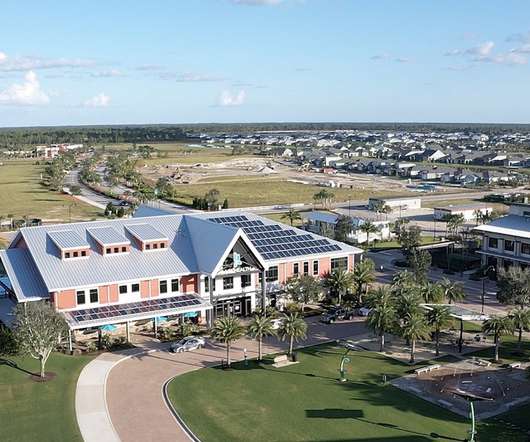Energy Innovation: Solar Energy Solutions Continue to Gain Momentum
Pro Builder
APRIL 1, 2021
Located on 10 acres in a Denver suburb, it serves some 500 low-income homes. . There is no debt on it, no equipment on it, and it gives a lot more flexibility and optionality within the portfolio.”. . Industry supporters have introduced such measures in Indiana, Kansas, Mississippi, Missouri, Texas, and Utah.















Let's personalize your content